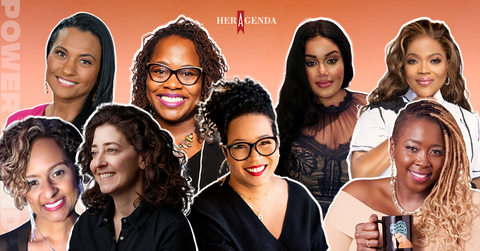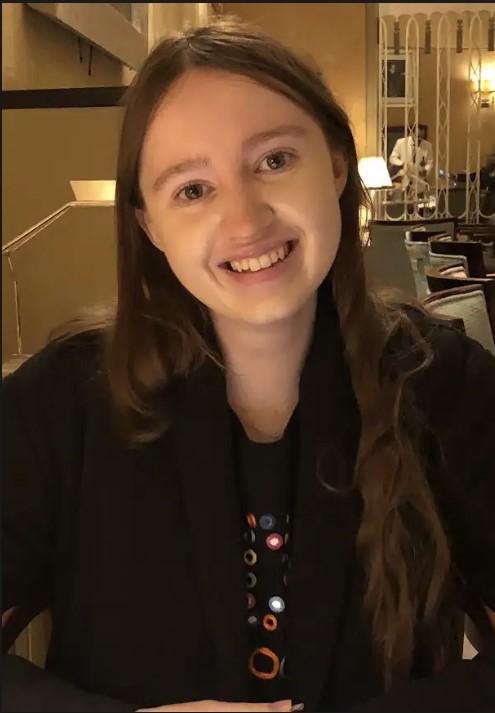Only 10% of Fortune 500 companies are led by women, despite the many benefits that women leaders provide by fostering collaboration and productivity. Every leader has an individual approach to managing their team and following their vision.
These Power Women each have a different perspective on what they feel is the most powerful leadership trait to embody and how they successfully lead teams across their industries.
Allison McGevna-Cirino, SVP of Content, iOne Digital
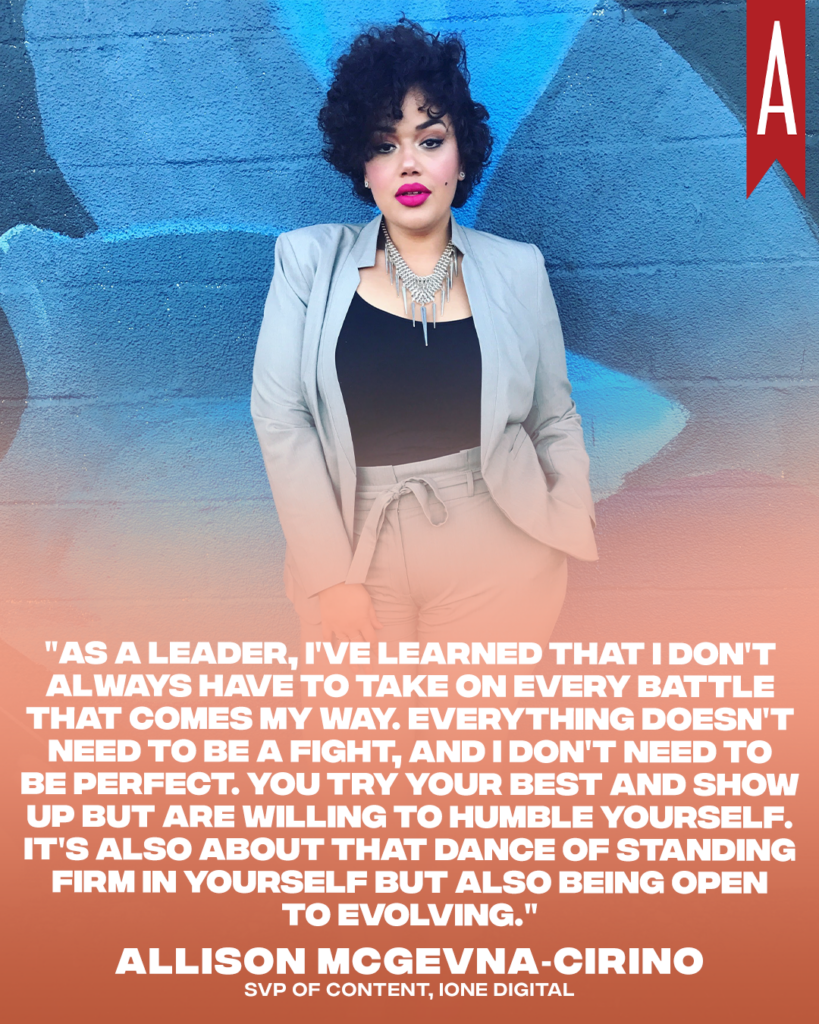
With a media career spanning 20 years, Allison McGevna-Cirino admits being an introvert, but believes that leadership is something to embody personally, while also being willing to hold yourself accountable.
“As a leader, I’ve learned that I don’t always have to take on every battle that comes my way. Everything doesn’t need to be a fight, and I don’t need to be perfect. You try your best and show up but are willing to humble yourself. It’s also about that dance of standing firm in yourself but also being open to evolving.”
Claude Silver, Chief Heart Officer, Vayner Media
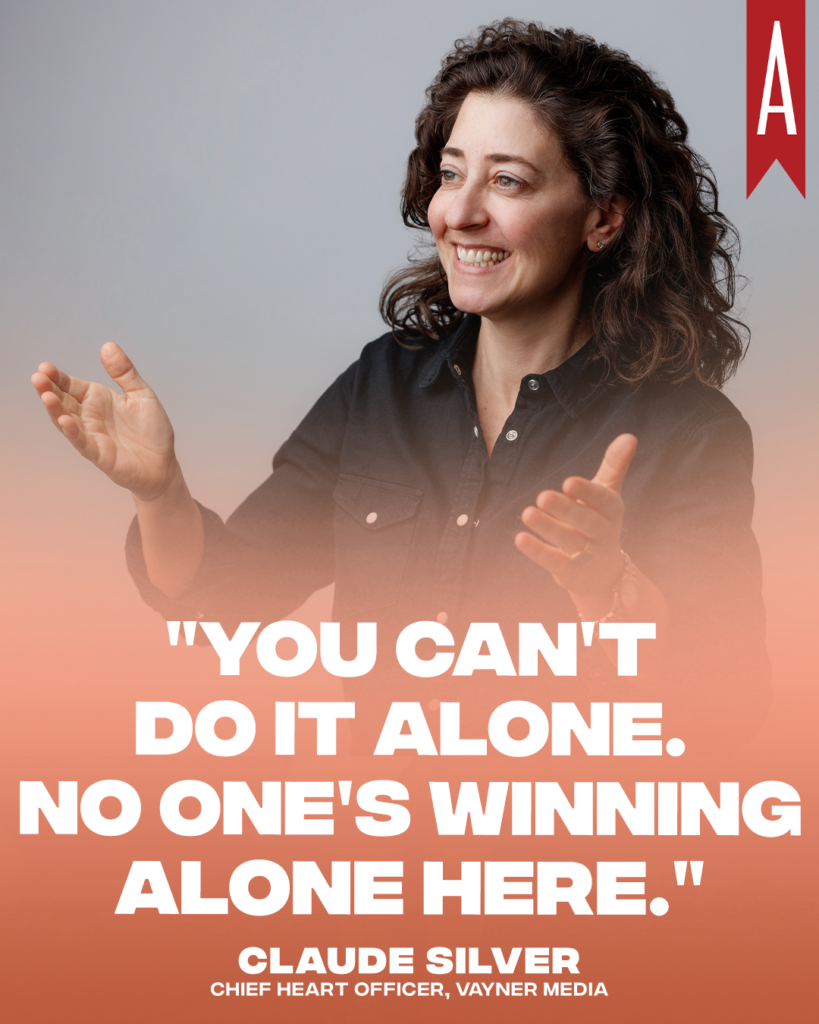
With a media-focused role that entails being a personal coach for over 800 employees, Claude Silver understands the importance of a thriving company culture and team environment, to foster success.
“The idea of team and teamwork is extremely important. Being a part of a team, showing up for the team, caring for the team, trusting the team, and being accountable. All of these things around team building are essential because nothing happens with one individual. There’s not one person out there [everyone has a team even people like] Richard Branson, Steve Jobs, Albert Einstein, the great Gloria Steinem, and Jane Fonda. Everyone needs community. So either be a team builder or be a strong part of that team. You can’t do it alone. No one’s winning alone here.”
Christine Simmons, COO of The Academy of Motion Picture Arts and Sciences
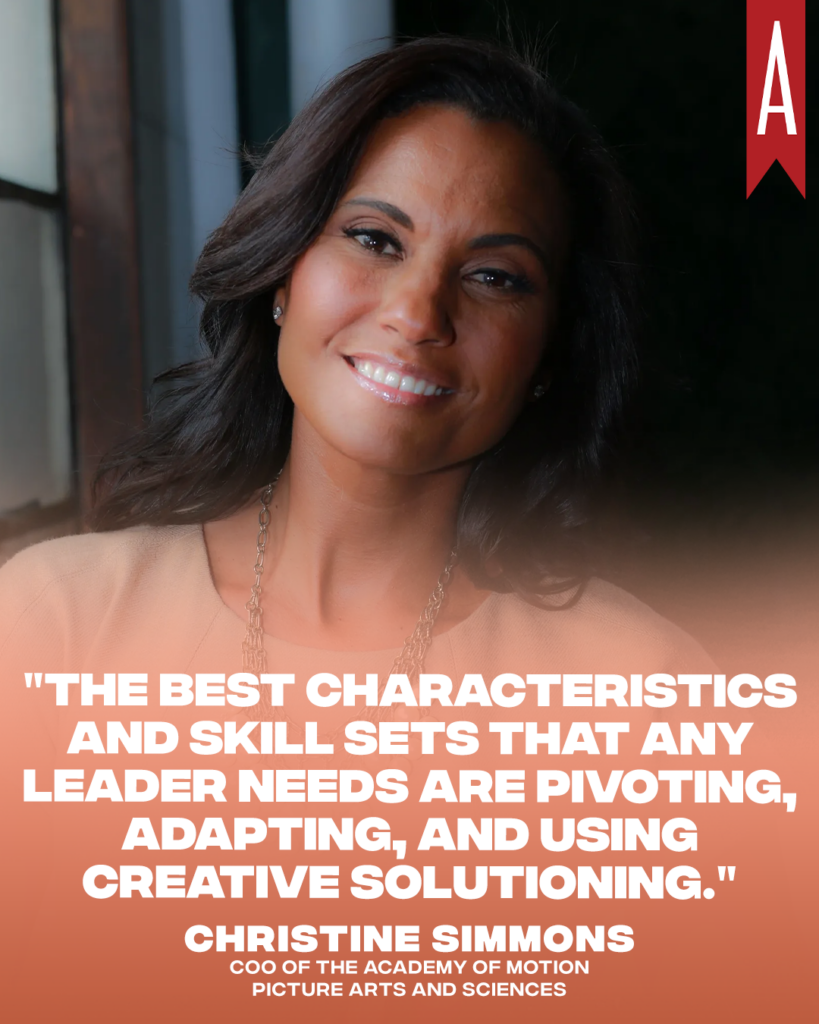
The first Black person and woman to serve in her role, Christine Simmons believes that being adaptive, forward-thinking, and ready for any scenario is the key to successful team leadership.
“The best characteristics and skill sets that any leader [needs] are pivoting, adapting, and using creative solutioning. When you are handed something, and it doesn’t go as planned, how do you adapt? Quickly survey the situation, the people involved, and all of the other problems you have to solve. There’s an immediate problem in front of you, but if you are only looking at that problem, and not thinking of problems that could or could not result from that, then you are truly not ready for executive leadership. That’s what this is about.”
Regina Lawless, Author of ‘Do You’, CEO and Founder of Bossy and Blissful
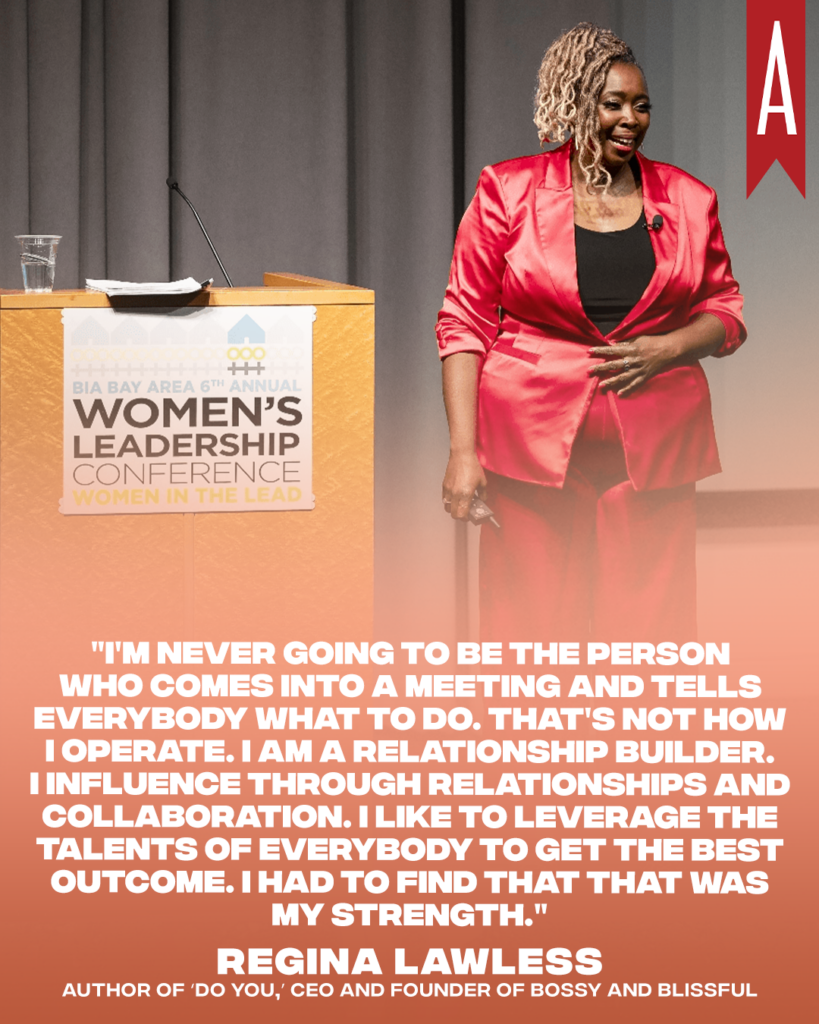
Entrepreneur Regina Lawless once struggled to find her feet as a leader because she was too focused on how other people had led successfully. In time, Regina has established herself as a relationship-first leader who seeks to garner her team’s natural strengths.
“I found I spent too much time trying to work on the things that I wasn’t naturally good at or trying to emulate male leaders and contort myself to be a certain way. I’m never going to be the person who comes into a meeting and tells everybody what to do. That’s not how I operate. I am a relationship builder. I influence through relationships and collaboration. I like to leverage the talents of everybody to get the best outcome. I had to find that that was my strength.”
Chef Liz, Celebrity Chef and Founder of Creamalicious
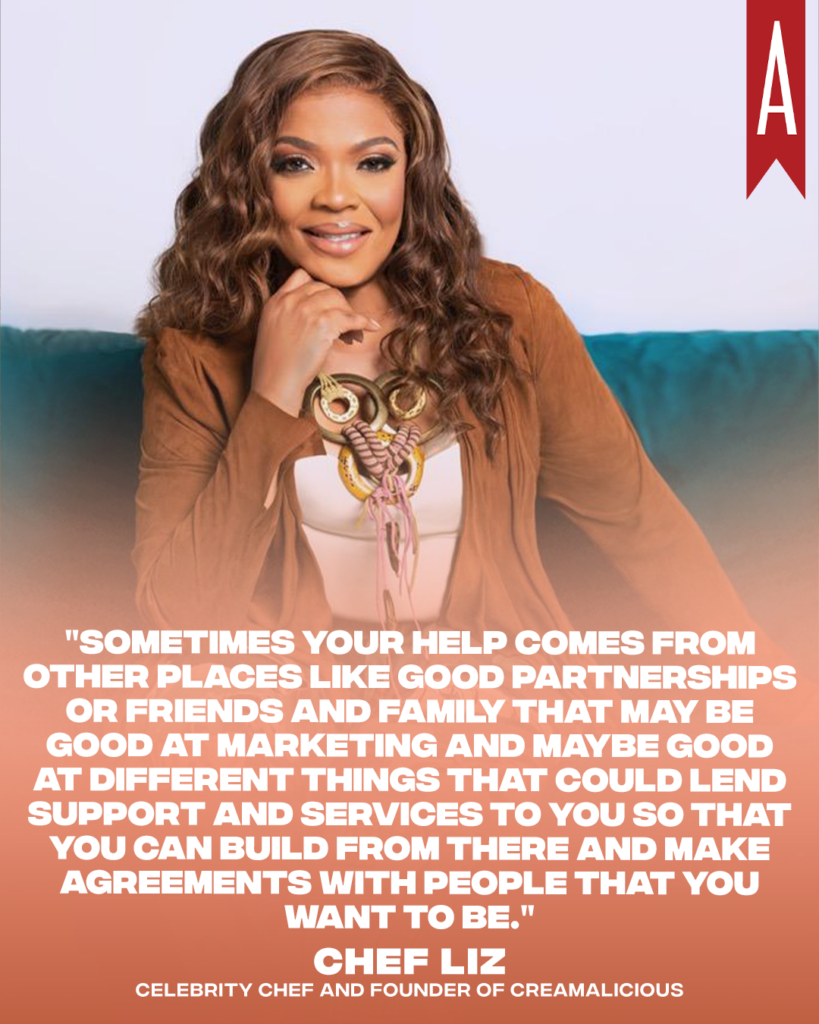
Chef Liz focuses on building a team of like-minded individuals to put her in the best position to lead an entire team that holds the same vision and trust it as much as you do.
“Sometimes your help comes from other places like good partnerships or friends and family that may be good at marketing and maybe good at different things that could lend support and services to you so that you can build from there and make agreements with people that you want to be. You may find a lot of people who just want to be a part of your team because they see something bigger than what it is today. That’s why I talk about being a visionary.”
Amber Cabral, Inclusion Strategist, Certified Coach, Speaker and Author
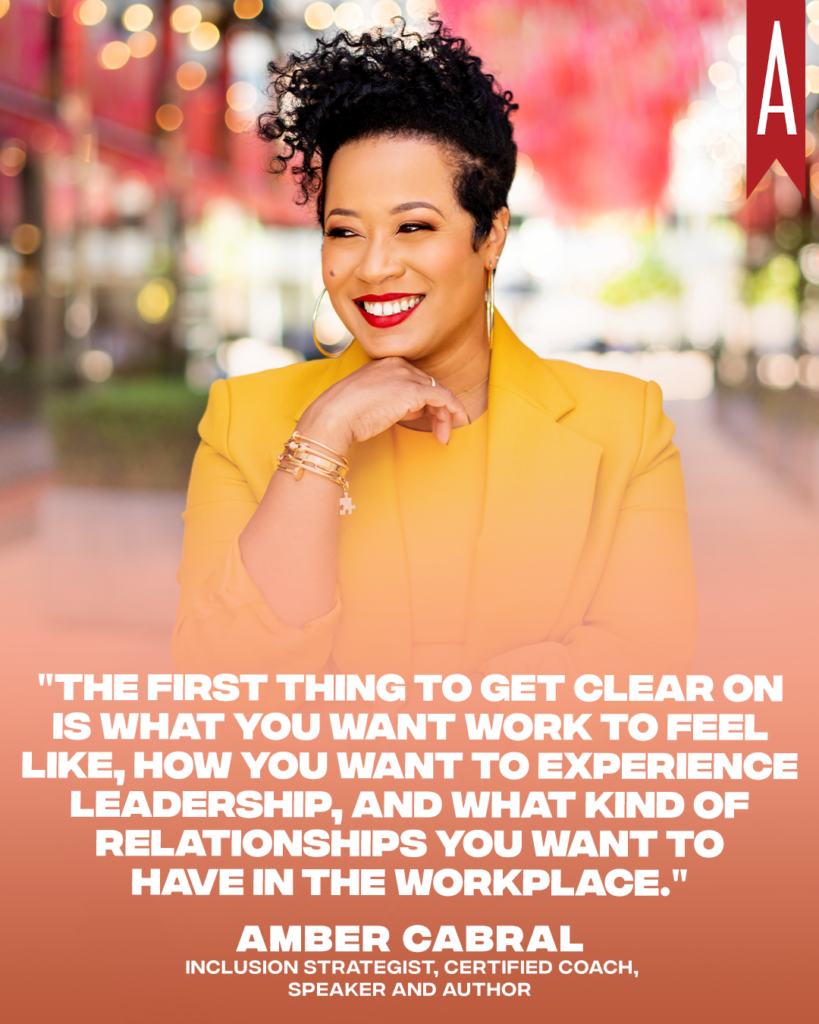
Trailblazer for inclusion, Amber Cabral’s mentality for leadership revolves around establishing boundaries, fostering collaboration, and embodying the leader she personally would want to be led to create strong workplace relationships.
“The first thing to get clear on is what you want work to feel like, how you want to experience leadership, and what kind of relationships you want to have in the workplace. So it’s important to establish boundaries around this, so when they get crossed, you can step back and determine if this is a conversation that needs to be had.”
Shanti Das, Host of The Milo Show; Founder of “Silence The Shame” Nonprofit
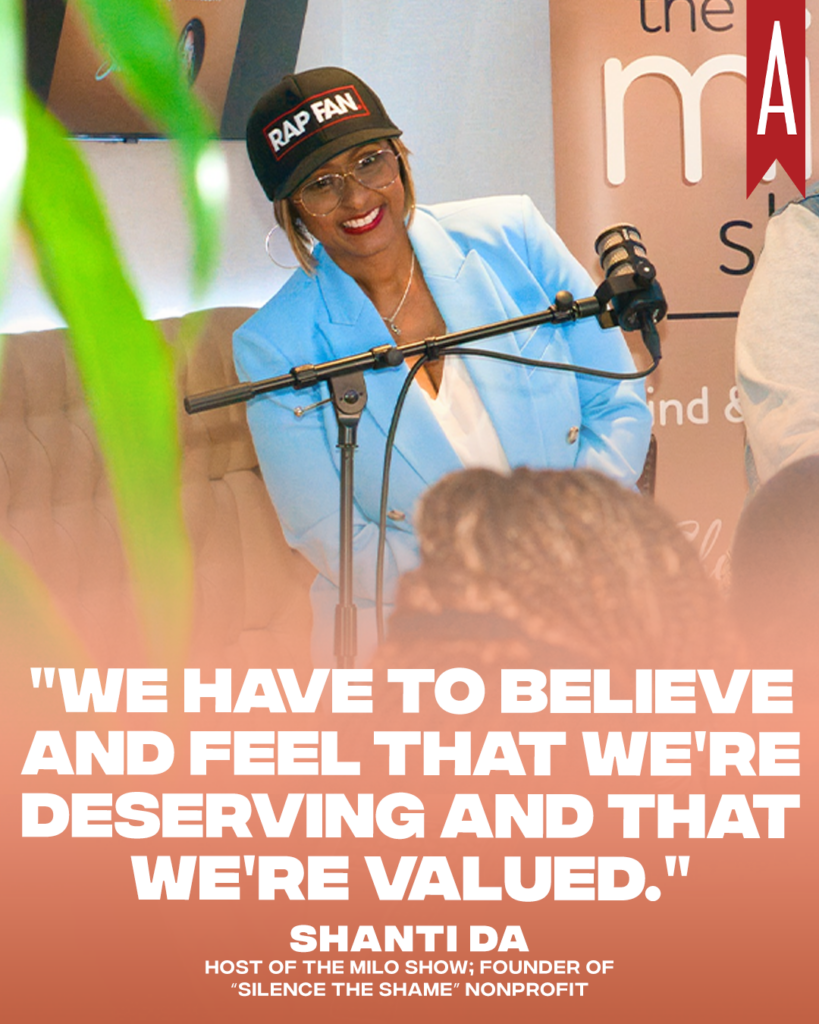
Music industry executive Shanti Das believes in minimizing self-doubt when it comes to leading, by finding and shifting into your own power in order to deliver strong leadership.
“We have to believe and feel that we’re deserving and that we’re valued. I think that’s sometimes where we struggle. Women have to learn how to push forward and really exude that confidence. Really show that you deserve to be there.
And the way you do that is by being so good, they can’t refuse you. There’s nothing better than hard work and determination – the statistics and the work will speak for itself.”
Tulaine Montgomery, Co-CEO New Profit
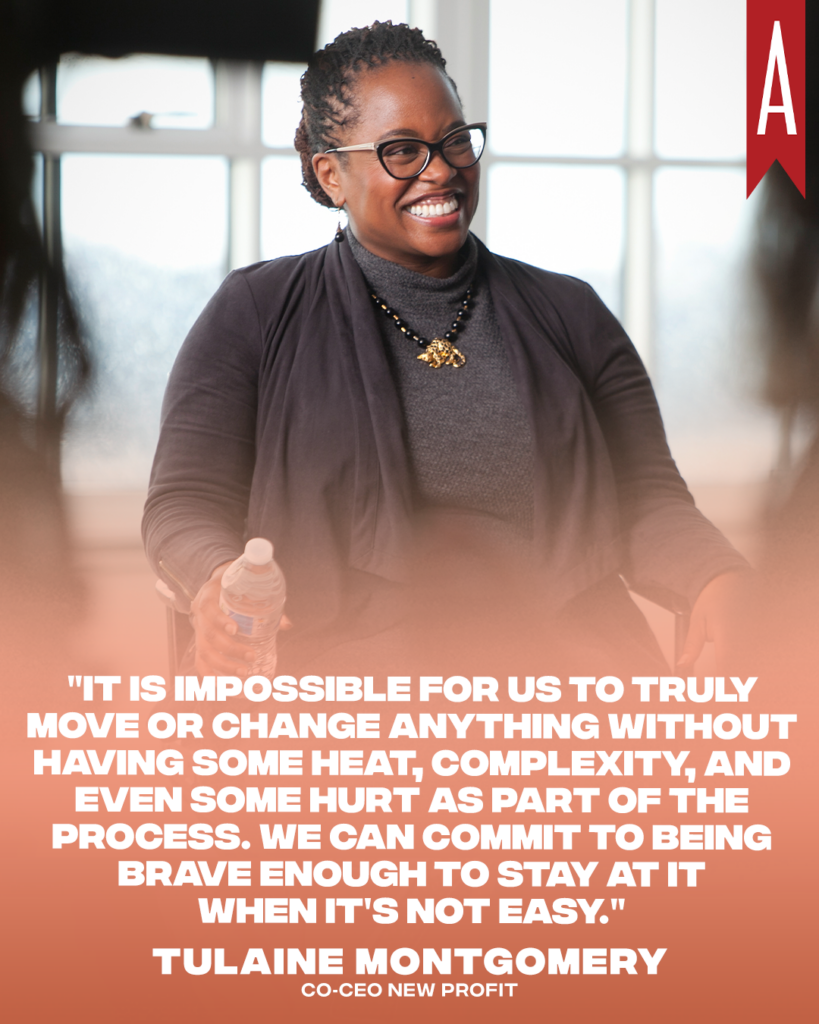
No stranger to the social enterprise sector, Tulaine Montgomery is a thought leader who supports and guides many leaders to be experts in their own fields and communities. Tulaine believes in navigating the challenging times of leadership to demonstrate the greatest strength.
“It is impossible for us to truly move or change anything without having some heat, complexity, and even some hurt as part of the process. We can commit to being brave enough to stay at it when it’s not easy. Brave enough to give another human the benefit of the doubt. To lead with grace even if there’s something that they did that is upsetting to us. To tell the truth about the impact, but not define and dismiss the person as their worst action or their biggest mistake. All of which takes courage. I invest time before conversations to build a relationship so that people can trust me and others who are holding space that’s really important.”

